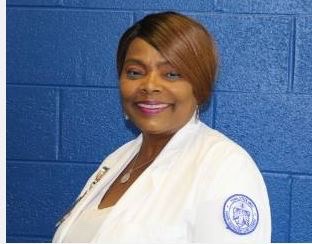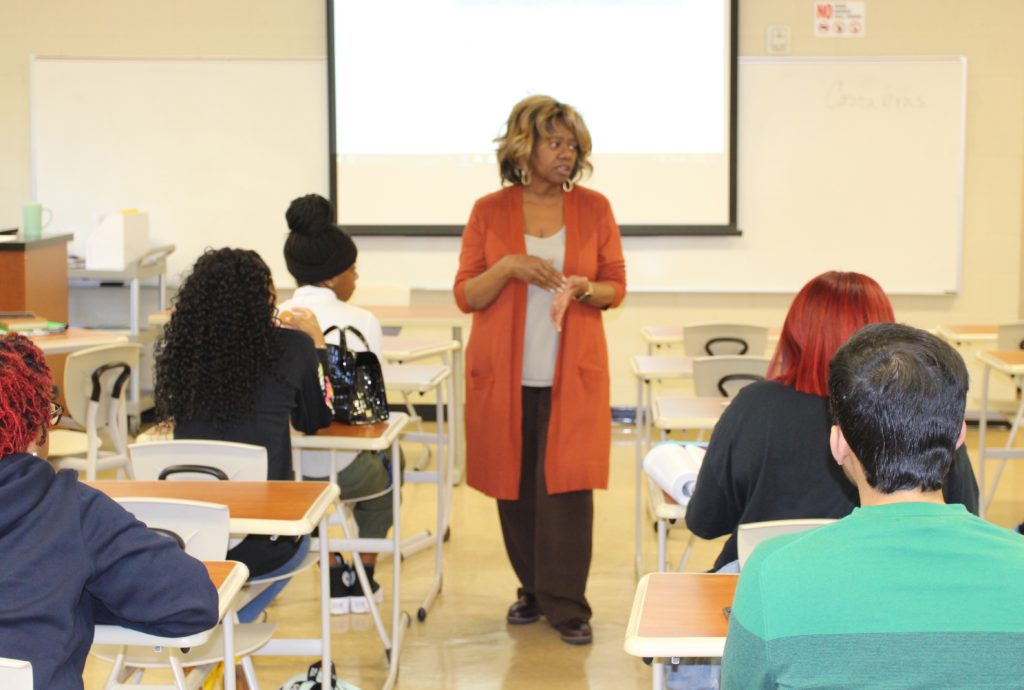NASHVILLE, Tenn. (TSU News Service) – The coronavirus has existed for years, causing people to have respiratory infections, essentially colds. However, Tennessee State University public health experts say the current outbreak is the result of a new strand, and that researchers are quickly trying to develop an antiviral drug.
TSU experts say students and Middle Tennessee residents can take precautionary measures to minimize their chances of contracting the coronavirus.
Dr. Wendelyn Inman, associate professor and interim Masters of Public Health program director at TSU, held an in-depth discussion with students in her Health Conditions In Functions and Disabilities Class about the coronavirus.
“The best protection is to get immunized to what we know. Many people are probably so worried about the coronavirus that they are getting the flu,” she explains. “When the flu season starts, I always recommend to everyone the flu shot. When your immune system is alert, and it is alerted by the flu shot, other things don’t hit it as hard.”
The Center for Disease Control and Prevention (CDC) reports that there are 15 persons in the United States who have tested positive for the COVID-19, the official name given to this new coronavirus, which was first detected in Wuhan China. An East Tennessee woman recently tested positive for the coronavirus when she and her husband were about to leave quarantine on a cruise ship off the coast of Japan.

Brenda K. Batts, assistant professor and director of clinical education at TSU, says they should not be fearful because of the effective quarantining of people who have tested positive for the virus. However, she says there are still preventive measures that can be taken.
“Just really be very cautious about people who have coughs and colds and have high temperatures. If you are experiencing that, get checked by your physician, but don’t expose others or yourself,” Batts says. ”Make sure you use lots of hand washing and sanitizing techniques, such as when you go to gas stations, restaurants or whenever you go anywhere in the public. Keep some hand sanitizer with you and clean your hands very well.”
Coronavris symptoms, which can last from 2-14 days, include runny nose, fever, headache, sore throat, feeling unwell, and cough. To prevent the disease, the CDC recommends: washing hands; avoiding touching eyes, nose, mouth with unwashed hands; avoiding close contact with people who are sick; staying home when sick; covering cough or sneeze with tissue; and cleaning and disinfecting objects and surfaces.
Robyn Hanna, a senior public health major who works as a patient care technician at St. Thomas West Hospital in Nashville, says she’s not concerned about contracting the virus at work because of the thorough precautionary measures they are instructed to take.
“As soon as you walk through the doors, there’s a sign, ‘If you have any of these symptoms, here’s a mask. Put it on.’ It’s at every exit and every entrance,” says Hanna, a Mississippi Gulf Coast native.
“Working on the floors we know people that are diagnosed with diseases. If they are being tested for it, they still get the precautionary items on the door. All the nurses and doctors and techs are vaccinated. That’s a must at the hospital.”
Fellow students Joseph Racine and Meleah Haley have varying concerns regarding the disease that recently surfaced in China. Racine works as a car maintenance specialist at the Nashville International Airport when not attending classes. The senior occupational therapy major says he has noticed travelers at the airport wearing personal protective equipment, such as gloves and masks. Racine says he is not afraid of contracting the virus.
“Most of the time that I am dealing with the rental cars that I touch, I have on gloves. Most of us wear gloves, but the people who don’t, you just kind of let them know, ‘You might want to put on some gloves,’” says Racine.
Haley, a senior health science major with a minor in public health, says she is concerned about the virus, primarily because of her upcoming travel plans.
“I’ll be taking an airplane. I’ll be going to Miami. Everybody knows that’s a place where a lot of people are,” says Haley, a Cincinnati, Ohio, native who is considering wearing a protective mask while flying. “I am really concerned about that. I’m even concerned about being in the airport and being on the airplane with all these cases of coronavirus. I don’t feel threatened at the university. I don’t necessarily feel threatened in the community, but I am definitely going to be alert.”

Dr. Inman supports wearing a mask while traveling, she says students and professors should understand that wearing masks to class for protection may create suspicion that they have contracted the virus.
“If you wear a mask, it is just as protective for you as the person wearing the mask to keep you from catching something,” she says. “But, if you are on a college campus and you put one on because you are concerned, everybody thinks you have it.”
Batts says students and employees who feel sick should not attend class or visit campus.
“I do think when students or faculty have colds or fevers, and they are coughing, that they should not be coming to campus. They should be seen to make sure they don’t have any form of that virus,” she says. “Most of the time people transport any type of respiratory virus to the environment by tabletops, instruments, equipment and labs.”
Walretta H. Chandler, TSU’s Student Health Services nurse, says students experiencing flu-like symptoms should visit the university’s health center located in in the Floyd-Payne Campus Center, Kean Hall, Room 304. Students can also call (615) 963-5291 to schedule an appointment.
Visit https://www.cdc.gov/coronavirus/2019-ncov/cases-in-us.html to learn more about the coronavirus. For more information on TSU’s College of Health Sciences, visit http://www.tnstate.edu/health_sciences/.
Department of Media Relations
Tennessee State University
3500 John Merritt Boulevard
Nashville, Tennessee 37209
615.963.5331
Founded in 1912, Tennessee State University is Nashville’s only public university, and is a premier, historically black university and land-grant institution offering 39 bachelor’s degree programs, 24 master’s degree programs, and seven doctoral degrees. TSU is a comprehensive research intensive institution with a R-2 Carnegie designation, and has a graduate school on its downtown Avon Williams Campus, along with the Otis Floyd Nursery Research Center in McMinnville, Tennessee. With a commitment to excellence, Tennessee State University provides students with a quality education in a nurturing and innovative environment that prepares them as alumni to be global leaders in every facet of society. Visit the University online at tnstate.edu.
